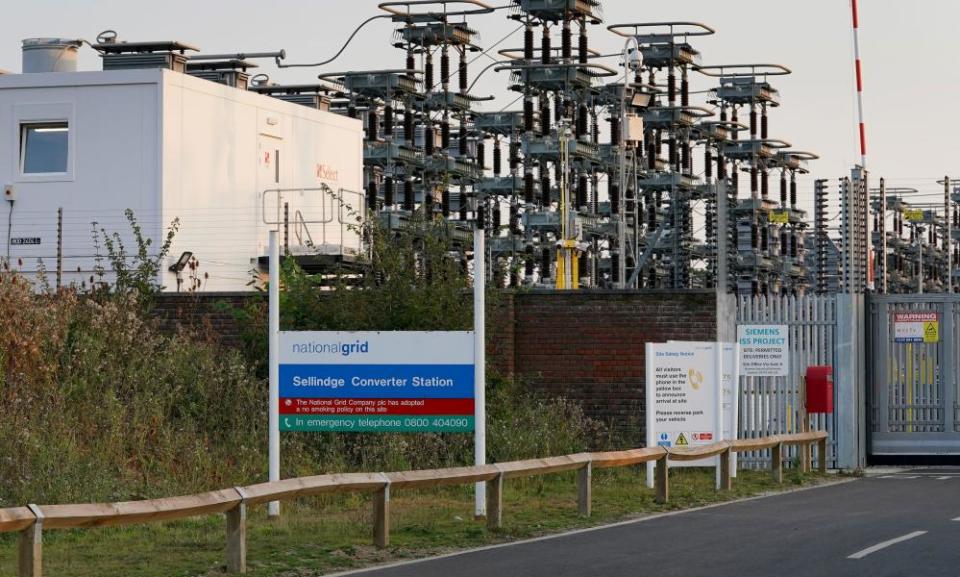If the UK’s energy suppliers were publicly owned, would we be having this crisis?

Government ministers say they will not bail out badly run energy supply companies with a poor business model. Bankruptcy is a natural part of business, and companies must be allowed to fail.
But the energy we need for our lives is not an ordinary consumer product; it’s a basic necessity. As a result, even though the sector is in the hands of private companies, we expect our government and local authorities to deal with the problem, because they have an unavoidable responsibility to ensure a reliable supply.
The real issue here is the business model of the energy sector as a whole, not those of individual companies. It was broken up into separate companies for transmission, distribution, generation and supply in the 1980s to enable privatisation, and the same formula was later applied by the EU throughout Europe.
But it doesn’t work, in many different ways. The monopoly grid companies haven’t invested much in upgrading the system for renewable energy, but they have extracted huge amounts in dividends and interest. National Grid shareholders took £1.4bn out of the company in both 2020 and 2021, although that is still below their record take of £3.2bn in 2017. The private generators didn’t invest in renewables until we started injecting public money. The supply companies didn’t compete and just enjoyed extracting dividends, until even Theresa May admitted there had to be a price cap – a humiliating acknowledgement of market failure.
Watch: Energy crisis, labour shortages and supply chain issues hitting the UK - here's what we're short of and the industries under threat
Would it make any difference to the problem of rising world gas prices if we had public sector energy suppliers? The pressures of the wholesale cost would be the same, after all, and public subsidies would still be needed to keep price rises down. But there are some key differences. The job of the public sector is to serve the public interest, so money doesn’t get taken out by private shareholders. Public companies can plan to use surpluses to help cushion events such as this. And public sector companies can be far more open with the public, providing more information and being more responsive to public concerns.
This isn’t just theoretical. In other major western countries, most households do not have to play the market as in the UK. In Germany, public sector suppliers of energy are more trusted, and two-thirds of all electricity is bought from municipally owned energy companies (“Stadtwerke”). They avoid other problems of the UK system, too. Stadtwerke own and run the great majority of the distribution companies and have also played a leading role in developing renewable electricity generation. The Stadtwerke of Munich city council has been supplying enough renewable energy for the needs of every household in the city since 2016, and by 2025 will supply enough for all the local industries, too – your BMW will be made using public renewable energy. In France, too, two-thirds buy their electricity from EdF, majority-owned by the French state, which also runs the grids and generates most of the electricity. In Italy, a similar proportion buy from AU, a public company owned by the regulator.
Related: Britain faces a triple crunch – and the political cost for the Tories could be huge | Larry Elliott
In the USA, where the states were allowed but not compelled to liberalise the sale of electricity, the state of California chose the exciting option of a free market in energy supply. This blew up in its face in 2000, when the state’s economy was crippled as Enron and other generators were alleged to have unfairly boosted wholesale power prices. The only place that escaped the repeated blackouts was the city of Los Angeles, where the whole energy system is run by a 100% municipal company, the Los Angeles Department of Water and Power (LADWP). The lights stayed on in Hollywood thanks to the public sector. No state in the USA has introduced retail competition since then, many retain public utilities, and most households and small businesses use the “default suppliers” set up by the states, rather than playing the market.
So why is the population of the UK doomed to struggle on, pretending, at great cost to ourselves, that this is a suitable arena for private business? Even under the EU rules, other countries find ways of relying on the strength of the public sector. And post-Brexit, we can do so much more easily – because we are no longer subject to the EU legislation that props up this discredited and unpopular system. The UK government seems to make great efforts to support the EU system, instead of recognising that the public sector is central to addressing the multiple challenges of the energy system.
David Hall is a visiting professor and former director of the Public Services International Research Unit at the University of Greenwich
Watch: Britain has 10 days to save Christmas, warns retail industry amid lorry driver crisis

 Yahoo Movies
Yahoo Movies 